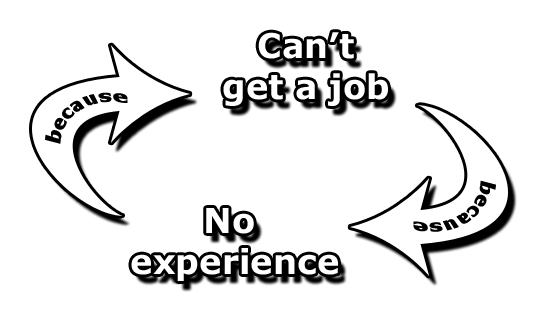Companies routinely use “prior work experience” as a significant factor when recruiting and hiring new employees. A look at any job posting board will no doubt show that most jobs require candidates to possess a minimum number of “years of experience” to even be considered for employment.
Recently, however, this practice has come under fire. Many are now suggesting that experience is overrated, and that companies place too much weight on experience when searching for job candidates.
These folks often point to the fact that many of today’s most successful companies were started by individuals who had little to no experience at the time of start-up (e.g. Bill Gates, Steve Jobs, Mark Zuckerberg, to name a few). They also suggest that advantages of not relying on “experience” when hiring includes: (a) the need for diversity on teams, (b) experienced hires often need to unlearn the bad habits that they might have acquired over the years, (c) it is not as expensive to hire people who have less experience, and (d) experience from one company doesn’t always generalize to other companies.
At some level, I agree with these points. I would argue, however, that for most jobs, experience plays a role in who is likely to succeed. The problem is that by only looking at someone’s basic job history you are not likely to gain much insight into how that experience translates to on-the-job success. You need to dig a lot deeper than that.
JOB TENURE DOES NOT EQUAL JOB SKILLS
Just because someone has spent many years working in a job, it does not necessarily mean that that individual has acquired the skills and work habits that you might expect. Consider two candidates applying for a maintenance mechanic job. Candidate A has seven years of experience working at a manufacturing plant. Candidate B has two years of experience working at a chemical processing plant. An initial review of these candidates’ qualifications might very well assume that Candidate A is more qualified for the job than Candidate B, based on the fact that Candidate A has more years of experience in the maintenance mechanic field.
However, “years of experience” is often an inaccurate measure of relevant experience. Instead, you need to consider multiple factors when evaluating these candidates. Some of these factors might include:
Breadth of Experience
Number of years in a job does not always equate to breadth of experience. For example, let’s assume that even though Candidate A has been a maintenance mechanic for seven years, he has spent nearly all of his time rebuilding valves that are specific to his manufacturing industry. Candidate B, on the other hand, has worked in all areas of his facility exposing himself to hundreds of pieces of equipment. Clearly, Candidate B has a wider breadth of experience than Candidate A.
Complexity Level of Experience
Certain tasks are much more difficult to learn than others. For example, as a maintenance mechanic, troubleshooting equipment is likely to be much more difficult than performing tasks that are the same or nearly the same every time (such as rebuilding a valve). A Candidate who has experience performing tasks that are complex or performed in a challenging situation (such as responding to an emergency) is likely to be more valuable to an organization.
Quality of Work
Finally, just because someone has substantial experience performing a job, does not mean that the person has performed that job at a level that your organization would expect. With our maintenance mechanic example, let’s assume that Candidate A, over the years, has learned “shortcuts” to doing his job that lead to poor quality of work. These shortcuts might allow him to get by on his current job, but would not be acceptable in a different job.
The bottom line is that in order truly evaluate someone’s experience–“years of experience”–isn’t what is important. What is important are the skills and work habits that a person has acquired throughout his or her career. The answer to that question requires a more thoughtful assessment than simply asking for “years of experience.”








Leave A Comment